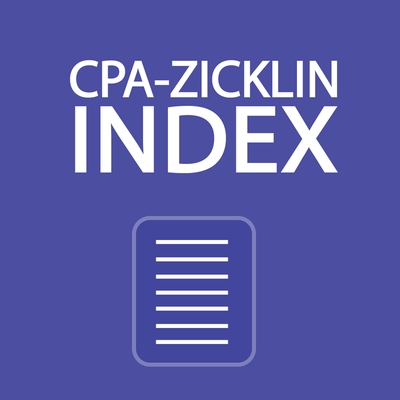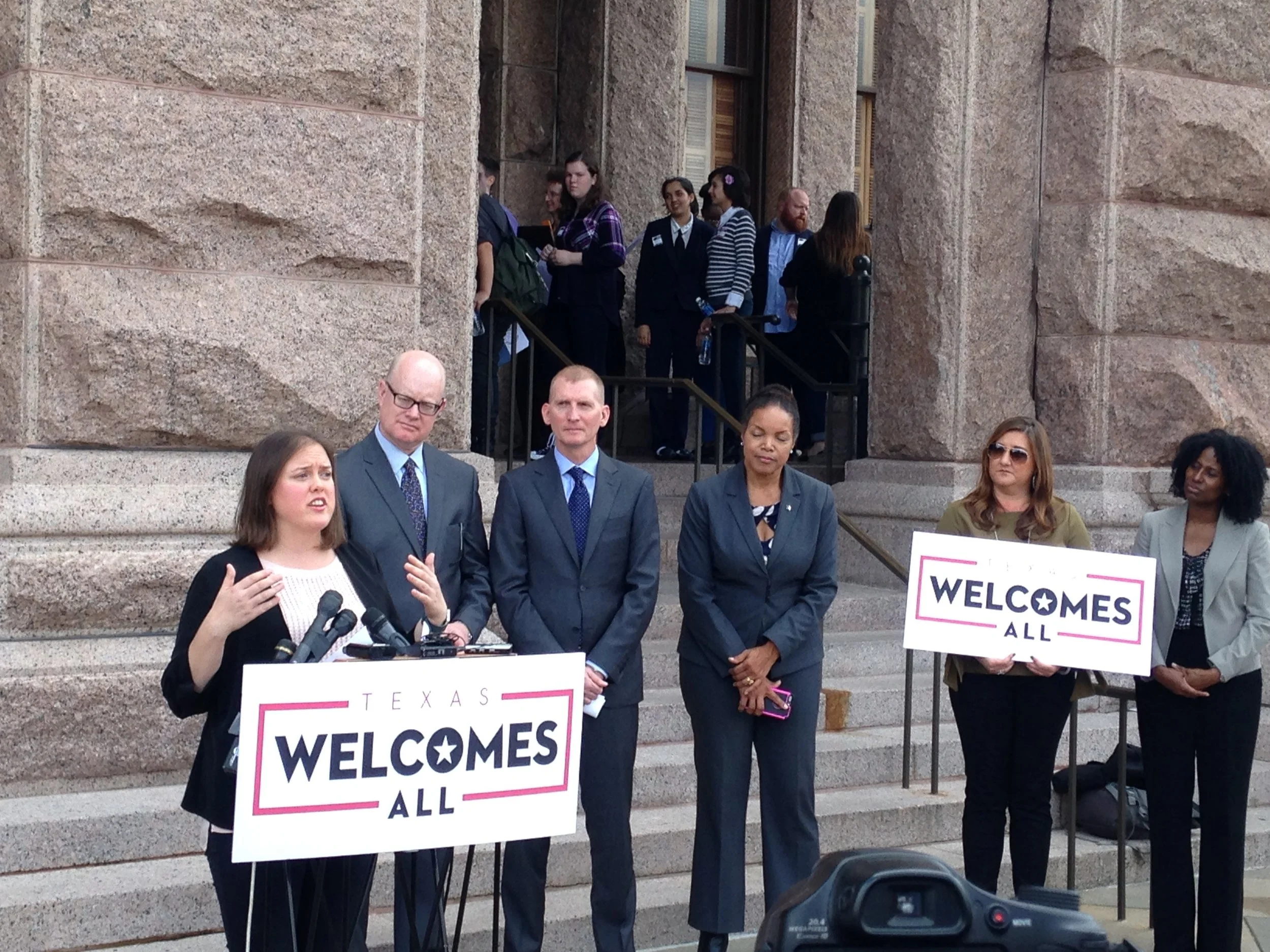
Executive Guide to Corporate Political Engagement & Influence
Balancing Political Influence Opportunities With Political Retaliation Risks
To reduce risk, US business leaders should ensure corporate political influence activities are transparent, deliberately managed, and aligned with stated corporate objectives and values.
Companies possess considerable power and skill at shaping laws through education, financial contributions, lobbying, and advocacy efforts. Businesses now account for 62% of all political contributions and 87% of disclosed federal lobbying expenditures, according to the University of Michigan Erb Institute’s Corporate Political Responsibility Task Force. This level of political influence means businesses face increased scrutiny. Repeatedly, the public calls for executives to be more active, accountable, and transparent in their political involvement. At the same time, some elected officials have begun threatening or acting against companies that don’t share their policy views, values, or goals. Modern business leaders must balance the opportunities of political influence with the risk of political retribution.
This executive guide will help you understand the basics of corporate political influence and how your company can proactively manage risk by ensuring political efforts are transparent, aligned with ESG goals, and contribute to a stable political and economic environment.
Key Terminology
-

Political Engagement
A legitimate effort by a company, coalition, or industry association to use expertise, authority, finances, and other resources to shape public policy, elections, civic affairs, or societal issues.
-

Political Retribution
When a federal, state or local government official threatens, attempts, or acts against a company because it possesses different policy views, values, or goals from the candidate, elected official, agency, or political party.
-

Stakeholder Capitalism
A corporate strategy in which long-term success requires companies to maximize shareholder value and measurably improve outcomes for key stakeholder groups, including employees, customers, and partners.
-

Social Impact
Business-led education, enablement, and action internally and externally through people-centric policies and programs that measurably improve outcomes for stakeholders, communities, and the planet.
Types of Corporate Political Engagement & Influence
Below are deep dives into the three primary ways businesses work with candidates, elected officials, and government agencies to influence public policy. These tactics help protect your company’s best interests and seize new opportunities.
Financial Contributions
Corporate political spending has been a hot topic for more than a decade. In 2010, the rights of businesses expanded when the United States Supreme Court ruled in Citizens United v. Federal Election Commission that companies and labor unions have the same right to political speech as individuals. This outcome removed many restrictions on money in American politics. It also permitted companies to have political expenditures from their treasury if they followed stated regulations.
Big Money in Politics
Spending in the 2022 federal and state elections broke midterm records at $16.7 billion, according to OpenSecrets, a nonpartisan, independent, and nonprofit research group that tracks money in U.S. politics. The fight between Republicans and Democrats for control of the House and Senate was a major reason for this considerable sum. While individual donors giving directly to candidates were responsible for most of the campaign funding, political action committees (PACs) also played a significant role, particularly for incumbents.
PACs are categorized by the IRS as “527s” along with political parties, candidates, and groups that focus on influencing “the selection, nomination, election, appointment or defeat of candidates to federal, state or local public office.”
What is a PAC?
Here is a simple summary of what you need to know about political action committees:
PACs are established by a corporation, special interest group, labor union, or another collective group of individuals.
Their goal is to collect and donate money to a political candidate, party or cause.
The type of PAC determines contribution sources, limits, allowed expenditures, and other regulations.
There are 5 primary types: Separate segregated funds (SSF), super PACs, nonconnected committees, hybrid PACs and leadership PACs.
PACs can’t be officially affiliated with any candidate or political party.
The Federal Election Commission (FEC) regulates PACs.
What’s an SSF?
Corporate PACs, or SSFs, solicit donations from individual employees or their family members and then contribute directly to political candidates, campaigns, political parties, or other PACs. SSFs must disclose their donors and expenditures.
What’s a Super PAC?
Super PACs, also called “independent, expenditure-only PACs,” can collect and spend unlimited money; however, these organizations are not allowed to donate directly to candidates or political parties. Instead, they must fund activities outside of campaigns, such as print, digital and broadcast advertising. As of February 06, 2023, 2,475 groups organized as super PACs have reported total receipts of $2.7 billion and total independent expenditures of $1.3 billion in the 2021-2022 cycle, according to OpenSecrets.
What About PACs for State and Local Elections?
State and local laws determine non-federal, corporation donation requirements. Most states allow businesses to donate directly to candidates, but some states have limits on the contribution amount. Typically, to support local or state candidates, special-interest groups (not individuals or companies) form “non-connected committees.” They differ from SSFs in that they can solicit funds from both individuals and corporations.
-
AT&T Inc Federal PAC aggregates contributions from employees and their families to donate to candidates for federal office
Home Depot PAC, supports coalitions and ballot initiatives to support efforts relevant to the retail industry
-
US Chamber Action supports business interests
American Nurses Association PAC works on nurses' behalf to elect and re-elect nurse champions to public office
-
Protect Democracy PAC funds pro-democracy candidates and incumbents from both sides of the aisle
Planned Parenthood Action works to advance access to sexual health care and defend reproductive rights
PAC Examples: Companies, Coalitions, Causes
What’s Dark Money?
Beyond giving to PACs, companies can also contribute to nonprofits, including chambers of commerce, trade boards, social welfare organizations, and labor groups. These non-profit 501(c)(4), (5), and (6) organizations are permitted to use funds for political activities and are not required to publicly disclose their donors. These undisclosed political contributions are considered “dark money.” Dark money groups have spent roughly $1 billion — mainly on TV and online ads — to influence elections.
As a Business Executive, What Can I Personally Donate?
Business leaders can also personally donate funds. Federally, individual business leaders are permitted to personally donate up to $2,500 per candidate. State and local elections are determined by that jurisdictions’ laws.
Resource Spotlight: CPA-Zicklin Index of Corporate Political Disclosure and Accountability
Issued annually, this index is currently the only measure of electoral spending transparency and accountability among the country’s largest public corporations.
Based on information posted by companies on their websites, the index measures performance in three areas: disclosure; company political spending decision-making policies; and board oversight and accountability policies.
The Center for Political Accountability and the Zicklin Center for Governance & Business Ethics at The Wharton School at the University of Pennsylvania use 24 indicators to assesses companies’ disclosure practices and accountability policies for spending with corporate or treasury funds to influence elections. It does not address company spending on lobbying or company political action committees.
Key Recommendation
The most important action is to make sure your political spending is transparent. The CPA-Zicklin Index currently tracks this transparency, and you can use the CPA-Wharton Zicklin Model Code of Conduct to make improvements.
In general, your company should take the following actions:
Create and follow a clear political spending policy
Publicly disclose all contributions and expenditures of corporate funds to candidates, political parties and related organizations
Map corporate ESG priorities (like climate change, equity, and democracy protection) to the candidates and organizations you fund to ensure alignment
Stop donations to politicians who don’t align with your corporate values, mission, or priorities. For example, companies like Microsoft, BNSF and Airbnb ceased giving to 2020 election deniers because democracy protection was one of their social impact focus areas.
IGC Solution: Political Influence Analysis
IGC and our partners analyze your efforts, support executives, and train staff on all facets of political engagement, including political contributions. We use innovative, data-driven methods to obtain stakeholder feedback, analyze your brand, and provide customized recommendations for your Board, C-Suite, PAC, and department leads in legal, HR, government affairs and communications. IGC will give you the confidence, tools, and peer network needed to navigate the complex intersection of economics and politics.
Corporate Lobbying
Businesses can educate and influence lawmakers, regulators, and other government officials to help protect their organization’s best interest and gain new benefits. This work is often performed by official corporate lobbyists. This role differs from an individual or constituent who contacts policymakers regarding a matter of personal importance. Like with corporate political financial contributions, transparency is becoming increasingly important and expected in lobbying.
What is a Corporate Lobbyist?
The official definition of “lobbyist” or “lobbying” varies by state; however, in general, a corporate lobbyist participates in an organized attempt to influence the government through verbal or written communications on behalf of a business or industry in return for compensation. Many companies use lobbyists in-house or through a third-party firm or coalition. These advocates work for or against policies that impact businesses, including specific budgetary or appropriation requests.
An important part of a corporate lobbyist's role is also education. Elected officials are often generalists and rely on the expertise of lobbyists to understand the details of a sector, technology, region, etc. Corporate lobbyists work with legislative staff to craft bills or push for revisions to advance policies that fit their organization’s best interest and help policymakers reach their goals. For example, a company focused on solar energy may meet with legislators to persuade them to enact legislation that promotes clean energy, an insurance company may lobby against enforcement measures, or a tech company may encourage legislators to take specific action on cybersecurity.
Corporate lobbying is a big industry. In 2021 alone, there were 15,000 active lobbyists and total lobbying spending reached $3.77 billion, according to the Leadership Now Project.
Corporate Lobbying Example: Semiconductor Industry Lobbies for American Chip Production
The Biden administration aimed to make the US more competitive against China. A big component of that strategy was moving more semiconductor manufacturing to the United States. Therefore, companies like Samsung Electronics, Qualcomm, and Micron hired lobbyists to help shape the Chips and Science Act, which provides $52 billion to spur American semiconductor production. Qualcomm, the biggest maker of smartphone chips, paid lobbying firm Covington nearly $3 million in two quarters, according to filings. Covington had eight people working on bills tied to semiconductors and China competition.
Reporting on Corporate Lobbying is More Important Now than Ever
With the polarizing political environment, key stakeholder groups are now demanding greater transparency from companies regarding their political influence efforts. Many organizations, including the World Economic Forum, advocate it’s time to include political engagement into the 'G’ of environmental, social and governance (ESG) criteria or even by adding a ‘P’ for political.
However, few disclosure standards exist. While there are federal and state lobbying regulations, most reporting is voluntary and often published in ESG reports. Additionally, most initiatives don’t account for lobbying done via trade associations or philanthropies.
ESG Frameworks
As of early 2023, here are the most common ESG frameworks and IGC’s take on their political influence metrics.
Global Reporting Initiative (GRI): Launched in 1997, GRI Standards enable any organization – large or small, private or public – to understand and report on their impacts on the economy, environment and people in a comparable and credible way. These standards are extremely popular around the world; however, they don’t dive deep into political influence efforts.
United Nations Sustainable Development Goals (SDGs): The SDGs are a universal call to action to end poverty, protect the planet and improve the lives and prospects of everyone, everywhere. The 17 Goals were adopted by all UN Member States in 2015, as part of the 2030 Agenda for Sustainable Development. While there isn’t a specific goal on corporate political influence, section 17.17 states, “encourage and promote effective public, public-private and civil society partnerships, building on the experience and resourcing strategies of partnerships.”
Morgan Stanley Capital International (MSCI): MSCI ESG ratings aim to measure a company’s management of financially relevant ESG risks and opportunities. While not specifically called out, political influence activities could fall under several categories, including business ethics, responsible investment, and community relations.
The Sustainability Accounting Standards Board (SASB): In 2018, the Board published a set of ESG standards specific to 77 industries, each with a set of financially material topics and associated metrics. One of the 5 metrics categories is “leadership and governance.’ This dimension involves the management of issues that are inherent to the business model or common practice in the industry and that are in potential conflict with the interest of broader stakeholder groups (e.g., government, community, customers, and employees). This section includes regulatory and political influence.
B Impact Assessment: A tool that companies can use to measure impact on workers, community, environment and customers, but doesn't currently look at policy efforts.
Risk: “Naming and Shaming” Companies
Without clear communications on political influence, watchdog groups have begun “naming and shaming” companies. Here are some examples:
InfluenceMap informs investors on how business and finance impact climate change
Progressive Shopper helps “put your money where your values are.” The organization features a Chrome extension that appears when you are making an online purchase. The tool shows Federal Election Commission (FEC) data on what the brand you’re visiting spends on political candidates and their committees.
Companies must have a clearly defined, public strategy for political engagement as these examples prove.
Alberto Alemanno, founder of The Good Lobby
“If a company intends to remain a legitimate participant of the political process, it must become more transparent and accountable in its lobbying and other corporate political activity. That’s what a small yet growing number of investors/shareholders, employees, and customers expect from the companies they invest in, work for and buy from.”
Key Recommendation
You must align your company’s political engagement with its stated environmental and social priorities. While the easiest way to follow this best practice is to halt or limit any corporate lobbying, that’s not realistic for most organizations. With trust in business at an all-time high, stakeholders expect corporations to be “good citizens,” and advocate. Additionally, businesses have the right to voice opinions on government regulations, budget appropriations, etc.
If you are engaging in any lobbying, IGC recommends actions like the following:
Strategic alignment between lobbying and business commitments
Official political transparency and anti-corruption policies as part of corporate governance
Board/executive oversight of corporate lobbying and other political engagement efforts
Documented involvement in trade associations, philanthropies, chambers and other organizations
IGC Solution: Consulting and Connections
IGC does not lobby on behalf of companies; however, we help unite your business with political consultants and other corporate leaders in your region, industry or focus area to exchange best practices.
Advocacy
Corporate advocacy is another important way businesses influence policy. Advocacy involves any efforts to influence politics outside of spending money or officially lobbying. From signing letters to joining advocacy coalitions to issuing public statements on issues, advocacy is about using your voice to influence political outcomes.
Corporate Advocacy Examples
Texas Competes open letter opposing anti-LGBTQ+ legislation
Business for Voting Rights statement to protect the right to vote
Don’t Ban Equality statement against reproductive healthcare bans
CEOs for Gun Safety letter calling for legislation to address gun violence
How Are Employees Involved in Advocacy?
In the US, employee resource groups (ERGs), or affinity groups, often organize and advocate for/against social and political issues. Effective employee groups have both executive support and employee participation from members of that specific community or allies. When united, these groups can collaborate and strategically try to influence policies. For example, PRIDE ERGs from Dell, IBM, Silicon Labs, Salesforce, and more unite and visit the Texas Capitol during every legislative session to advocate for the LGBTQ+ community.
New tools are emerging to help employees unite and amplify their opinions. For example, ClimateVoice helps employees act on environmental policies. With tools like this, it’s critical that executives and employee resource group leaders understand the legal guidelines and align them with the goals, roles, and rules of corporate advocacy efforts.
What is an ERG? In the 1960s, black workers at Xerox created the first-known, voluntary, self-organized group in the United States to mitigate race-based tension at work. This collective became known as an “employee resource group,” or ERG.
Now, ERGs are increasingly relevant as gender, ethnicity, race, etc. are all part of the regular corporate dialogue. Effective employee groups have both executive support and employee participation from members of that specific community or allies. When united, these groups can collaborate and strategically try to influence policies. For example, PRIDE ERGs from Dell, IBM, Silicon Labs, Salesforce, and more unite and visit the Texas state capitol during every legislative session to advocate for the LGBTQ+ community.
ERGs are found in 90% of Fortune 500 companies, according to TopMBA, and many Great Place To Work Certified organizations have ERGs.
Key Recommendation
To protect your company, you should have a strong employee handbook that addresses political advocacy. It could answer questions like the following:
When do I represent myself vs. my employer when talking to elected officials?
Can I talk about politics at work without fear of retribution?
Can my employer question me about my political conversations on social media?
The responses to these like this are often complicated and rely on state and federal laws as well as a clearly defined company culture. Proskauer’s Labor & Employment Department shares this example to highlight the complexity:
A construction worker engaging in advocacy involving police reform at a protest or before a legislative body would likely not be protected because the topic of the advocacy is unrelated to the employee’s job as a construction worker. However, if the same construction worker was advocating before a legislative body in support of safety regulations that would impact the jobsite, the employee’s advocacy would likely qualify as protected concerted activity.
IGC Solution: Tools and Training to Help Launch, Optimize, Educate and Mobilize ERGs
IGC has extensive experience in creating, optimizing, and reporting the ROI of employee resource groups worldwide. Additionally, we help ERG leaders sustain their efforts with programming and out-of-the-box toolkits in our private digital community. We can also work with executives and your lawyers to create playbooks and policies on employee advocacy.
Political Retribution
An Emerging Risk for All Companies
In a healthy political and economic environment, corporate executives should be comfortable speaking out about issues that impact their business. Utilizing the influence methods described above, business leaders have a key role in the political process. And it’s mutually beneficial. Policymakers get insights from subject matter experts, while business leaders help shape legislation that best meets the needs of their organization.
In the US, government officials and agencies have increasingly threatened and/or actually implemented retaliatory laws and policies against organizations that don’t align with their political goals. For instance, in 2021 the Texas Alcoholic Beverage Commission threatened to revoke the liquor licenses of restaurants that required customers to show proof that they had been vaccinated for COVID-19. When Delta spoke out against the Georgia state legislature’s contensious new elections law the same year, the state’s House of Represenatives voted strip Delta Airlines of a multimillion tax break for jet fuel (the measure died in the Senate).
One of the most recent examples of political retribution is the case of Disney and DeSantis in Florida, as our comprehensive case study shows. A Daily Beast article summarizes the Disney situation below:
Disney caught DeSantis’s wrath by coming out against the “Parental Rights In Education” bill, which opponents renamed the “Don’t Say Gay” bill, in March [2022]. The company said after the PRE law passed that it would work to repeal it. Whether one agrees with the law or not, or whether Disney was wise to speak out or not, is irrelevant. In a healthy political economy, corporate managers are comfortable in speaking out about matters of concern to some of their employees, and in working through the political process, including through public speech, to change, enact, or repeal laws as their interests lie. Elected officials, customers, and other employees may agree or disagree with this corporate speech.
DeSantis would be well within political norms to say that he disagrees with Disney, and to say that he’ll work just as hard within the political process to keep the law in place. Voters freely elected the governor and the legislators who created the PRE law, and may freely re-elect them or not.
But that’s not what the governor and lawmakers are doing. In late April, they directly targeted Disney for permanent revenge by enacting a law to dissolve Reedy Creek, Disney’s 55-year-old self-governing district.
It’s also the right of government workers, elected officials, employees, and others to voice their support or opposition to the company’s political influence efforts. However, many argue that to threaten, attempt or act against companies that are politically active is not only undemocratic, but it is also a violation of the First Amendment. Here is the logic:
The First Amendment guarantees the right for individuals to speak out or support a political candidate without fear of retaliation
SCOTUS ruled in Citizens United v. Federal Election Commission that companies have the same right to political speech as individuals
Therefore, revenge politics violates the First Amendment right of a company
This complex topic is still highly debated so it’s key to follow laws and public sentiment around this issue.
Key Recommendation
Your company should add political threats to your incident response and crisis communications plans. Even if you deem the likelihood of a political emergency minimal, take political retaliation seriously. By proactively adding a political section to your plans, you will be able to respond quickly, efficiently and effectively to a range of incidents. This step also helps minimize the impact on employees and customers and prevents considerable losses to company revenues and reputation.
It’s also important to note that politicians don’t just make threats due to a company’s stance on social issues — it could be a reaction to anything that doesn’t align with the elected official’s agenda.
IGC Solution: Political Influence Analysis
IGC and our partners analyze your efforts, support executives, and train staff on all facets of political engagement, including political risks. We use innovative, data-driven methods to obtain stakeholder feedback, analyze your brand, and provide customized recommendations for your Board, C-Suite, PAC, and department leads in legal, HR, government affairs and communications. IGC will give you the confidence, tools, and peer network needed to navigate the complex intersection of economics and politics.
IGC helps businesses build meaningful social impact programs that meet the needs of all stakeholders.
We approach each strategic engagement with a business lens to reduce risk and seize opportunities. But we are more than consultants. IGC specializes in impact communications and has decades of experience developing messages and programs that positively convey social and environmental impact. We can help you engage stakeholders and amplify your impact across a wide range of activities from investor presentations to employee events.








